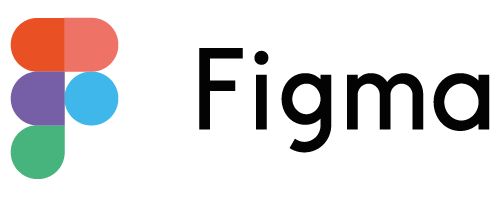In most startups, few positions are more crucial than a Product Manager. They shape the entire product development process and are likely responsible for your main revenue driver.
Since they also set the vision and align your internal teams to bring it to life, clearly hiring the wrong Product Manager can be detrimental.
So, when stakes are high, how can you hire someone without a plan?
That’s why our Product and UX recruiting team created this comprehensive guide on the A to Z of hiring product managers.
This post will answer the following questions:
- What are the most important skills for a Product Manager?
- What are the different types of Product Managers?
- How do you find Product Managers to hire?
- What red flags should you address in an interview?
- What is the ideal interview process for a Product Manager?
- What questions should you ask a Product Manager?
The most important skills for a Product Manager:
An exceptional PM needs three key things:
- Excellent communication skills
- Genuine interest in your product’s industry
- Strategic and analytical thinking style
Here’s why:
Excellent communication skills:
Your Product Manager will coordinate with multiple internal teams, including Design, Engineering, Marketing, Analytics, and more. This means excellent communication skills with both technical and non-technical people are critical to being successful in the role.
When hiring PMs, look for evidence that they can break down complex topics in such a way that anyone—even a teenager—can understand. A good Product Manager will also be able to leverage data appropriately to form compelling arguments and influence decision-makers.
Genuine interest in your product’s industry:
Every successful product-led company knows this—the user matters the most. Therefore, you need a PM with a deep and genuine interest in learning your industry, to put themselves in the shoes of your user.
If a Product Manager doesn’t seem genuinely interested in your product or industry beyond just compensation, pass on them. They cannot become an expert on something without a genuine desire to do so.
Strategic and analytical thinking style:
The best Product Managers have a good sense of business that goes beyond just product management. They often have generalist skills like writing effective copy, understanding good design, or entrepreneurial tendencies.
A good Product Manager doesn’t need to be a full-fledged Product Designer but should be able to distinguish between good and great design.
Other skills to look for include the ability to prioritize appropriately; forecast, measure, and compare the results of a project; and the ability to understand technical trade-offs and compromise as needed.
Looking for a great product manager is a lot like looking for a CEO.
Take it seriously.
The different types of Product Managers:
Now that you understand the core skills required of a Product Manager, it’s important to recognize that not every PM is the same.
Shreyas Doshi is an advisor to fast-growing startups and previously led product at companies like Stripe, Twitter, Google, and Yahoo.
He categorized product managers into three major buckets:
The Operator: The operator is excellent at scaling teams, cross-org alignment, and unblocking execution. They’re also great communicators but not known for coming up with original product insights. If you want to stabilize, it’s best to look for an Operator.
The Craftsperson: The craftsperson is best at defining product strategy and product insights for a specific and established product line. They are naturally curious people and enjoy spending time with teams and users.
The Visionary: The visionary has the foresight to build a great product from scratch. This is the most difficult form of product management and is most common at early-stage startups. They might struggle with team management but specialize in seeing what others can’t.
The type of Product Manager you want to hire will depend on your stage of growth.
And since it’s highly unlikely to find someone who can fit into all three buckets, you’ll want to think deeply about this before moving forward.
It’s especially important for you as a startup founder, CEO, or product leader to do this analysis so that you can optimize your vetting process and better align your internal decision-makers.
How to find Product Managers to hire:
Now that you’ve done the deep work and have a clear vision of who you want to hire, it’s time to find Product Managers to interview.
At this stage, it’s important to remember that Product Managers are in high demand. This means the best PMs are probably already employed and not browsing job boards for a new opportunity.
In order to access high-caliber talent who will take your Product team to the next level, we highly recommend partnering with an experienced headhunter instead of using common job boards.
An experienced headhunter will help you proactively reach out to the best PMs, generate interest in your opening, and bring them into your pipeline to vet and eventually hire.
If you don’t have the budget for a headhunter, then job boards are an option as well. You may occasionally get a great resume from a Product Manager; however, keep in mind they will be in the process with numerous other companies, so it’s essential to be in “sell mode.”
Shameless plug: StaffGrabbers is a Product and UX recruiting agency that has a team of experienced headhunters who can connect you with the best available talent – no matter the zip code. In addition to building your talent pipeline, we also take care of all screening calls, interview scheduling, job post writing, outreach, reference checks, and the negotiation process.
That said, here are our recommendations for the best job boards to hire Product Managers:
- LinkedIn Jobs
- Built In
- Indeed
- ProductHunt
To get activity on these job boards, you need to write a compelling job description. A good job description can make or break your chances of attracting the right people to interview with you.
Here are some tips to keep in mind when writing a job description:
Use the title: “Product Manager – 100% Remote” if the position is fully remote. Having this clearly articulated in the title will drastically increase the number of applications you receive.
Less is more in the company description. You want the description to be short and compelling enough to generate interest, but not so long that people skip over it. Try to avoid using too much corporate speak.
We highly recommend including a compensation range. You’ll get more interest. If you want to offer someone less than the top of the range, be transparent and direct about why and what experience they’re lacking. People are more reasonable than you think.
Candidate Red Flags:
As you search for a PM, you’ll come across a wide mix of candidates and referrals. Here are two red flags that should be addressed during an interview:
Chronic Job Hopping
There’s nothing wrong with changing jobs to grow your career. However, if someone has a history of changing positions too frequently, we recommend avoiding them.
This jumpiness demonstrates poor decision-making because they’re constantly in a situation where they need to change companies.
It also means they’re unlikely to make a significant impact on your product since they are more likely to change positions before becoming an expert.
A high turnover will lower your team morale, create confusion, and cause decision whiplash. We strongly recommend you avoid Product Managers who chronically job hop and have multiple 1-year stints.
The sweet spot is 3 – 5 years, with the occasional smaller jump in between.
Lack of Career Progression or Evidence of Success
If you find Product Managers who are constantly making lateral career moves, it’s a strong sign that they’re hitting a career ceiling in terms of how high their performance will take them.
If the candidate never seems to get promoted, be sure to discuss this with them to understand why.
On the flip side, it’s always a great sign to see a few promotions.
It means they’re capable of meeting and exceeding expectations.
The ideal interview process for a Product Manager:
Before you start interviewing Product Managers, think deeply about your full process.
A streamlined and organized interview is crucial to hiring a talented PM, as the best ones will always pull out of companies that appear disorganized, unattractive, or have too lengthy of a process.
A high-quality interview process will also help you evaluate a Product Manager correctly and will maximize your chance of getting an accepted offer when you find the right person.
Here’s what a winning interview process looks like for us:
Start with a screening call between the candidate and your HR/recruiting partner. If they pass this phone call, then…
- The 1st round is with the hiring manager.
- The 2nd round consists of a few 1:1s with members of the product, design, and engineering team.
- The 3rd round is typically a panel interview with executive leadership, the hiring manager, and/or more members of the product, design, and engineering team.
That’s about it.
World-class companies are hiring product managers after 3 or 4 rounds.
You can too.
If you’re not sure who to include in the interview lineup, here are some ideas:
Small startups (less than ~100 employees) often connect potential product managers with the founders, other PMs, and the engineering and design leads.
For larger companies, the lineup usually changes to reflect a VP of Product instead of the Founder and CEO.
Regardless of who is in the lineup, be sure everyone is aligned on the intangibles and skills you’re looking for.
Questions to Ask a Product Manager:
Here are some ideas to vet your candidate:
- What is your favorite software product and why?
- How would you improve your favorite product if you could?
- Tell me about a time when you used data to inform a decision.
- What are your career goals or 5-year plan?
- What’s your reason for leaving your last role?
- Tell me about the most exciting product launch of your career. How were you involved? What was your GTM strategy?
- How would you explain what a database is to a 10-year-old?
- Are you reading any books right now? Which ones?
- What’s your criteria for a well-designed product?
- How do you typically gather feedback from users?
- What do you think are the most exciting technology trends, and why are they important?
- How do you conduct competitor analysis?
- What was the hardest decision you had to make as a product manager? How did you handle it?
- How do you build internal credibility with the engineering team?
- What technical skills do you have that set you apart?
- Do you have experience with XYZ methodologies?
- Do you have any experience managing a team?
- What do you consider good design in a product?
This wraps up our guide on how to hire Product Managers. We hope it helps!
Friendly reminder that StaffGrabbers specializes in headhunting all levels of Product Management, Product Design, Product Marketing, and Product Analytics.
If you need to hire and want to recruit high-caliber talent, please reach out to us at hello@staffgrabbers.com.











